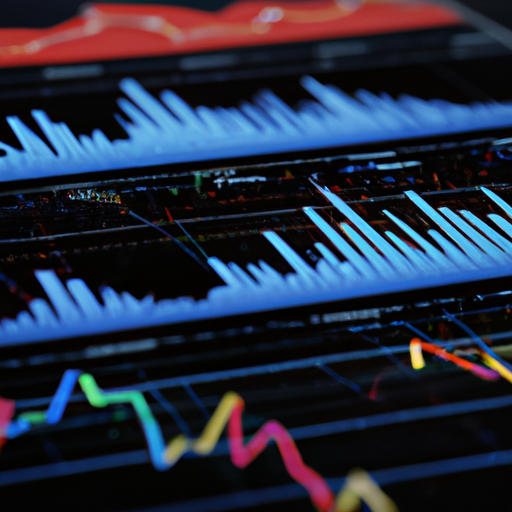- Table of Contents
- The World of Forex Trading and Financial Derivatives
- Forex Trading: An Overview
- Key Features of Forex Trading:
- Financial Derivatives: An Introduction
- Advantages of Financial Derivatives:
- Differences Between Forex Trading and Financial Derivatives
- Liquidity:
- Risk Profile:
- Regulation:
- Case Study: Trading Forex vs. Derivatives
- Forex Trading Strategy:
- Derivatives Trading Strategy:
- Conclusion
The World of Forex Trading and Financial Derivatives

Forex trading and financial derivatives are two popular investment options that have gained significant traction in recent years. Both offer unique opportunities for investors to profit from fluctuations in the financial markets. In this article, we will explore the basics of forex trading and financial derivatives, their differences, and how investors can leverage these instruments to enhance their investment portfolios.
Forex Trading: An Overview
Forex, or foreign exchange, trading involves buying and selling currencies in the global marketplace. The forex market is the largest and most liquid financial market in the world, with an average daily trading volume exceeding $6 trillion. Investors can trade a wide range of currency pairs, such as EUR/USD, GBP/JPY, and USD/JPY, among others.
Key Features of Forex Trading:
- 24-hour trading: The forex market operates 24 hours a day, five days a week, allowing investors to trade at any time.
- High liquidity: The forex market is highly liquid, meaning that investors can easily enter and exit positions without significant price slippage.
- Leverage: Forex brokers offer leverage, allowing investors to control larger positions with a smaller amount of capital.
Financial Derivatives: An Introduction
Financial derivatives are contracts that derive their value from an underlying asset, such as stocks, bonds, commodities, or currencies. Derivatives can be used for hedging, speculation, or arbitrage purposes. Common types of financial derivatives include options, futures, forwards, and swaps.
Advantages of Financial Derivatives:
- Risk management: Derivatives can be used to hedge against adverse price movements in the underlying asset.
- Enhanced returns: Derivatives allow investors to amplify their returns through leverage and speculation.
- Diversification: Derivatives provide investors with exposure to a wide range of asset classes and markets.
Differences Between Forex Trading and Financial Derivatives
While both forex trading and financial derivatives involve trading financial instruments, there are key differences between the two:
Liquidity:
Forex markets are highly liquid, with tight bid-ask spreads and high trading volumes. In contrast, liquidity in the derivatives market can vary depending on the contract and underlying asset.
Risk Profile:
Forex trading is inherently risky due to the volatile nature of currency markets. On the other hand, derivatives can be used to manage risk through hedging strategies.
Regulation:
Forex trading is regulated by government authorities and financial institutions, while derivatives are subject to oversight by regulatory bodies such as the Commodity Futures Trading Commission (CFTC) and the Securities and Exchange Commission (SEC).
Case Study: Trading Forex vs. Derivatives
Let’s consider a hypothetical scenario where an investor is deciding between trading forex and financial derivatives. The investor has $10,000 to invest and is looking to generate a return over a one-year period.
Forex Trading Strategy:
The investor decides to trade the EUR/USD currency pair using a leverage of 1:50. After careful analysis of the market, the investor opens a long position on EUR/USD at 1.2000. Over the course of the year, the exchange rate appreciates to 1.2500, resulting in a profit of $5,000 (500 pips x $10 per pip).
Derivatives Trading Strategy:
Alternatively, the investor could purchase a call option on the S&P 500 index with a strike price of 3,000. If the index rises above 3,000 by the expiration date, the investor would profit from the option contract.
Conclusion
In conclusion, forex trading and financial derivatives are powerful tools that investors can use to profit from the financial markets. While both offer unique opportunities and risks, it is essential for investors to understand the differences between the two and develop a sound trading strategy. By incorporating forex trading and financial derivatives into their investment portfolios, investors can diversify their risk and potentially enhance their returns.